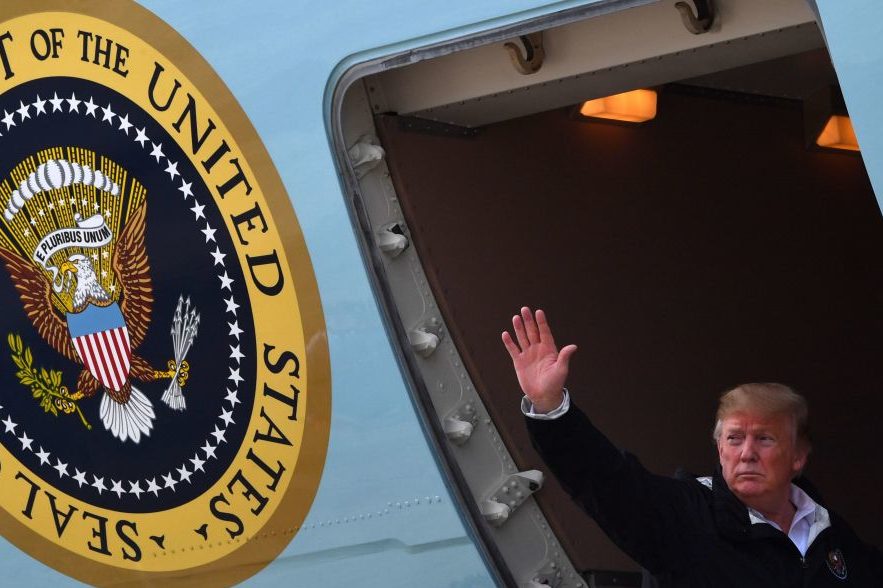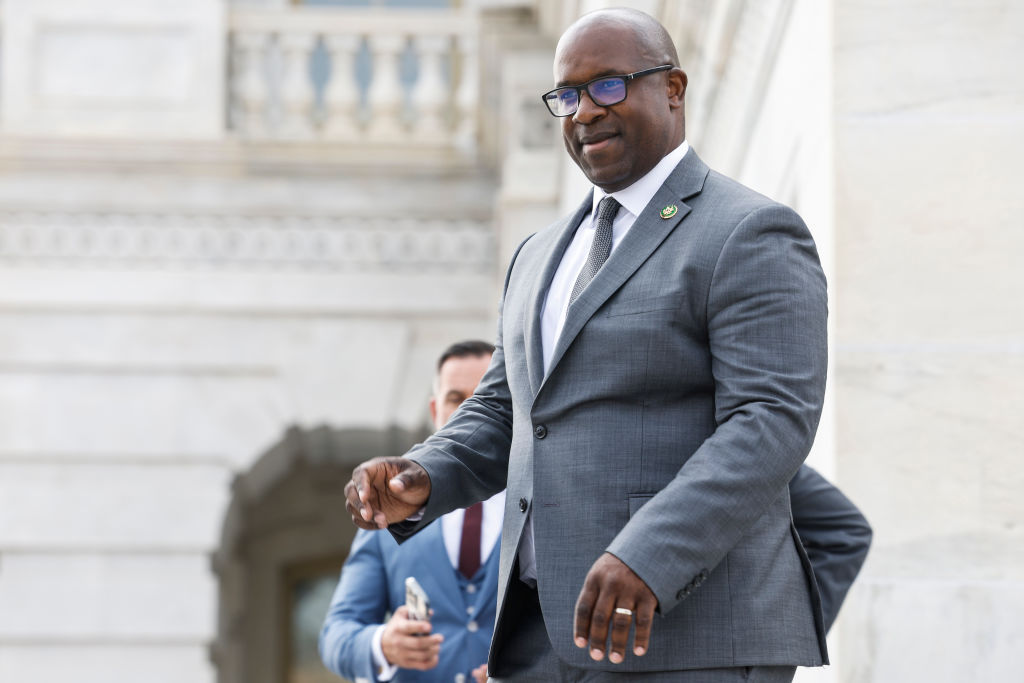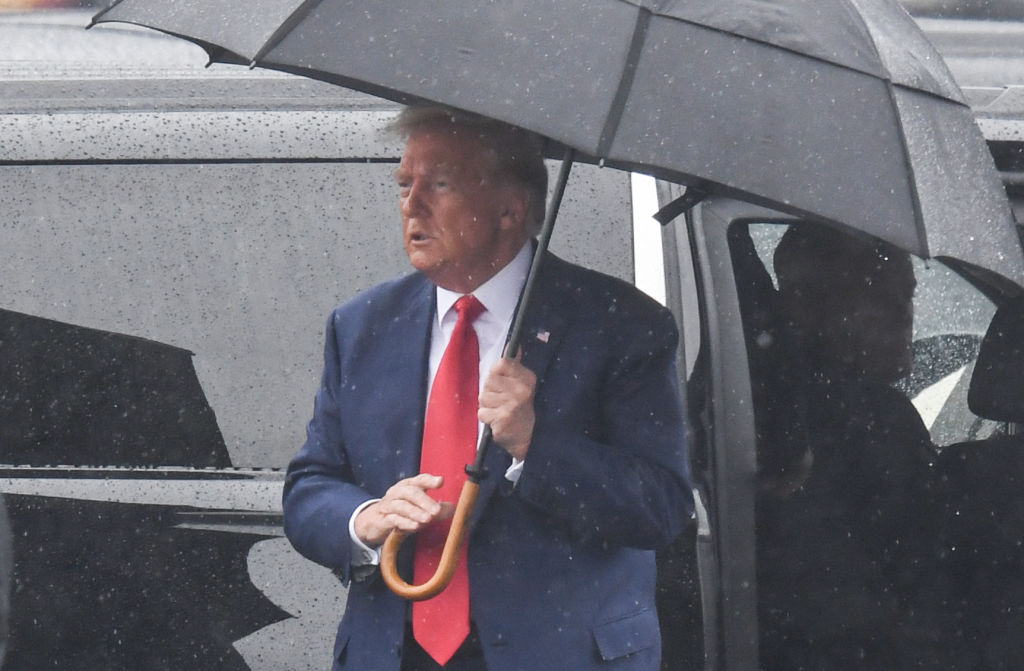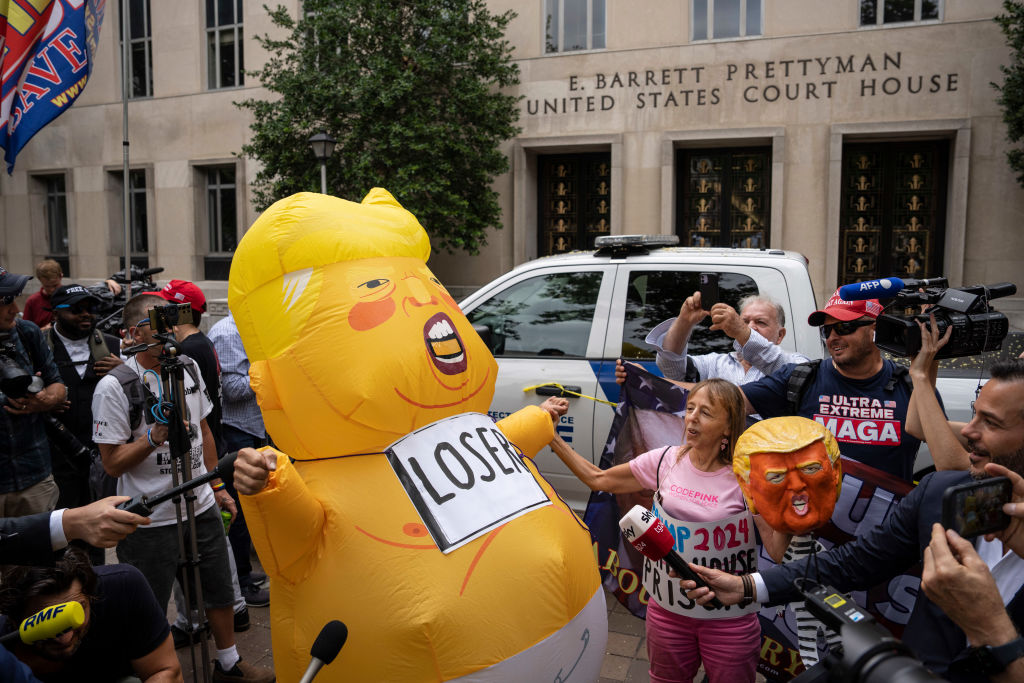Nixon said: ‘When the president does it, that means that it is not illegal.’ President Trump’s version of this is that he can pardon himself and he can’t be accused of obstructing justice in a federal investigation because he’s the head of the federal government and that would be to obstruct himself. His lawyer and spokesman, Rudy Giuliani, argues that a president can’t be indicted in the ordinary criminal courts. Giuliani also says that the Special Counsel, Robert Mueller, agrees with this.
But could a president be indicted, that is charged, or accused, in the courts? And would Mueller want to? The answer may not be as simple as Giuliani makes it seem. Last year, Giuliani said that the only thing Mueller could do was ‘write a report’ and then leave it to the House of Representatives to decide whether or not to impeach – that is charge – the president. He said that Department of Justice policy didn’t allow a prosecutor to indict a president. The Special Counsel’s office had tried to be ‘coy’ about that, he said, but finally they’d called him to say: ‘Of course, we’re bound by Justice Department policies.’
The Deputy Attorney General, Rod Rosenstein, was asked about this and said he wouldn’t answer ‘in the context of any current matters’ but when the issue had come up ‘in the past’ the DoJ had said that a sitting president could not be indicted. Case closed? Not quite. The words ‘in the past’ are the important ones in Rosenstein’s statement. And Mueller’s staff seem to have been careful to tell Giuliani only that they would follow DoJ policy. Policy can be changed. Mueller could even ignore it.
He might do just that, according to the lawyer who drafted the Special Counsel regulations, Neal Katyal, President Obama’s Solicitor General. Katyal wrote an op-ed for the New York Times last year saying: ‘The regulations contemplate that a special counsel could, in appropriate circumstances, depart from Justice Department policy.’ In fact, he went on, ‘the regulations put a thumb on the scale in favor of having Mr Mueller seek an indictment if he finds evidence of criminal wrongdoing by Mr Trump.’ Why? The reasons are both legal and tactical.
The tactical reason is that the regulations say Mueller would have to give a detailed final report to Congress if he were overruled by theAttorney General on any substantive issue. Let that sink in. Mueller’s means of making sure his report isn’t buried would be to ask for something he knows the Attorney General, William Barr, can’t give – say a Presidential indictment. Asha Rangappa, a former FBI agent, wrote in the Washington Post that this was the only way to guarantee the report was made public. The Attorney General refusing to allow Mueller to indict the president ‘would automatically trigger the reporting requirement to Congress.’
The legal reason Mueller might recommend indicting the president would be to stop the statute of limitations running out while Trump remains in office. A former judge, Andrew Napolitano, has said on Fox News (of all places) that he believes Trump may have been secretly indicted because of this. ‘There’s ample evidence…to indict the president, the question is do they want to do it?’ If the time limit for bringing charges against a sitting president was about to expire, he said, ‘you indict in secret, keep it sealed and release it the day he gets out of office.’
If President Trump were indicted, the Supreme Court would have to rule whether or not that was constitutional. (For that reason alone, it’s hard to imagine that Trump could be secretly ‘indicted under seal’.) Professor Walter Dellinger has written a guide to the arguments on Lawfare, which is required reading in Washington D.C. these days. He lists six DoJ opinions on the subject, including the most recent, the one now in force, which says you can’t indict. But there have been other opinions at other times. Dellinger says: ‘The possibility of including the president in an indictment is not categorically foreclosed.’
In United States v. Nixon, the Watergate prosecutor, Leon Jaworksi, told the Supreme Court: ‘It is an open and substantial question whether an incumbent president is subject to indictment.’ He was drawing on an opinion written for him and for the DoJ that said: ‘There is nothing in the language or legislative history of the Constitution that bars indictment of a sitting president…’ Ken Starr, the prosecutor who investigated Bill Clinton, had a legal opinion from an outside consultant that also said you could indict a president. Mueller could use those arguments today.
Still, why not leave it all up to Congress? One reason is that all Congress can do is remove a president from office – if the Senate convicts, in a trial that would come after the House has impeached. Congress has no power to impose criminal penalties. That would be left to the courts after a president has left office – and we are back to Mueller’s need to stop the clock on the statue of limitations by bringing indictments. (No one is arguing that a president, if indicted, could be tried in the ordinary courts. That would have to wait.)
President Trump has said, repeatedly, that there is no evidence of wrongdoing, just a ‘witch hunt hoax’ by the ‘Deep State’. Many of his supporters believe that Deep State is trying to overturn the election result. Trump’s old friend and supporter, Roger Stone, has said: ‘Try to impeach him. Just try it. You will have a spasm of violence in this country, an insurrection like you’ve never seen.’ If President Trump were forced out of office and under criminal indictment, he would be at risk of going to jail. If indicted, he would be at risk of going to jail even if there was no impeachment – once he left office. His only way to stay out of court would be to stay in office. Winning the next election would become a matter of personal as well as political survival.
When it looked as if he was losing in the last election, Trump spoke about a ‘rigged system’ and hinted at not accepting the result. His former lawyer, Michael Cohen, told a House committee two weeks ago: ‘I fear that if he loses the election in 2020 that there will never be a peaceful transition of power.’ If there is a debate in the DoJ about whether a president can be indicted, these are the stakes.
Paul Wood is a BBC correspondent.

























